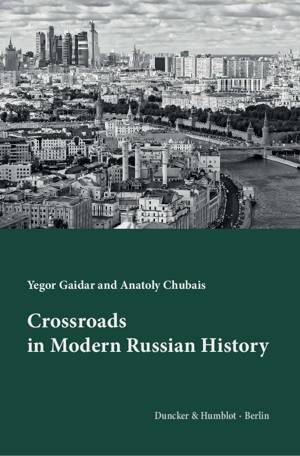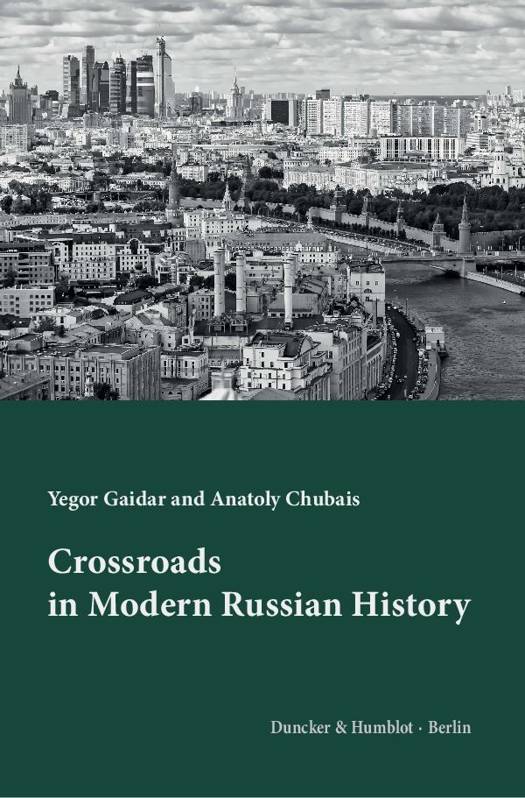
- Afhalen na 1 uur in een winkel met voorraad
- Gratis thuislevering in België vanaf € 30
- Ruim aanbod met 7 miljoen producten
- Afhalen na 1 uur in een winkel met voorraad
- Gratis thuislevering in België vanaf € 30
- Ruim aanbod met 7 miljoen producten
Zoeken
Crossroads in Modern Russian History
Translated by Antonina W. Bouis
Anatoly Chubais, Yegor Gaidar
Paperback | Engels
€ 100,45
+ 200 punten
Omschrijving
The book uses historical material to examine the most important crossroads in modern Russian history (1921-2009) and shows the circumstances in which they occurred.Each chapter deals with a different period of twentieth-century Russian history. The book gives clear and simple explanations of the decisions taken in those fateful years, describing which crossroads in history required decisions and what limitations and obstacles forced the authors to act in one way rather than another. Yegor Gaidar and Anatoly Chubais are not historians, they are the people who elaborated and made the decisions so crucial for Russia in the 1990s and who took all responsibility for the consequences.Based on historical material, the book examines the most important crossroads of Russian history in the period 1929-2009, showing the circumstances that gave rise to them - the choice of political decisions and the consequences, including new institutions. The result of the political decisions made in the late 1920s and early 1930s was the Soviet centrally planned economy; its growing crisis led to the crossroads of the 1990s. The decisions of 1992-1993 led to the creation of the market economy in Russia, a new stage in the country's development.
Specificaties
Betrokkenen
- Auteur(s):
- Vertaler(s):
- Uitgeverij:
Inhoud
- Aantal bladzijden:
- 106
- Taal:
- Engels
Eigenschappen
- Productcode (EAN):
- 9783428148530
- Verschijningsdatum:
- 3/02/2016
- Uitvoering:
- Paperback
- Formaat:
- Trade paperback (VS)
- Afmetingen:
- 155 mm x 231 mm
- Gewicht:
- 1896 g

Alleen bij Standaard Boekhandel
+ 200 punten op je klantenkaart van Standaard Boekhandel
Beoordelingen
We publiceren alleen reviews die voldoen aan de voorwaarden voor reviews. Bekijk onze voorwaarden voor reviews.








